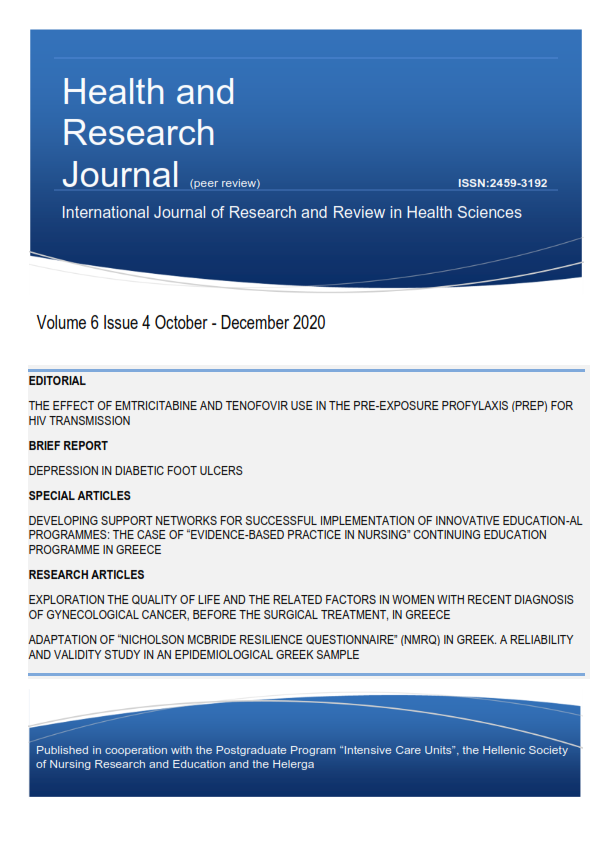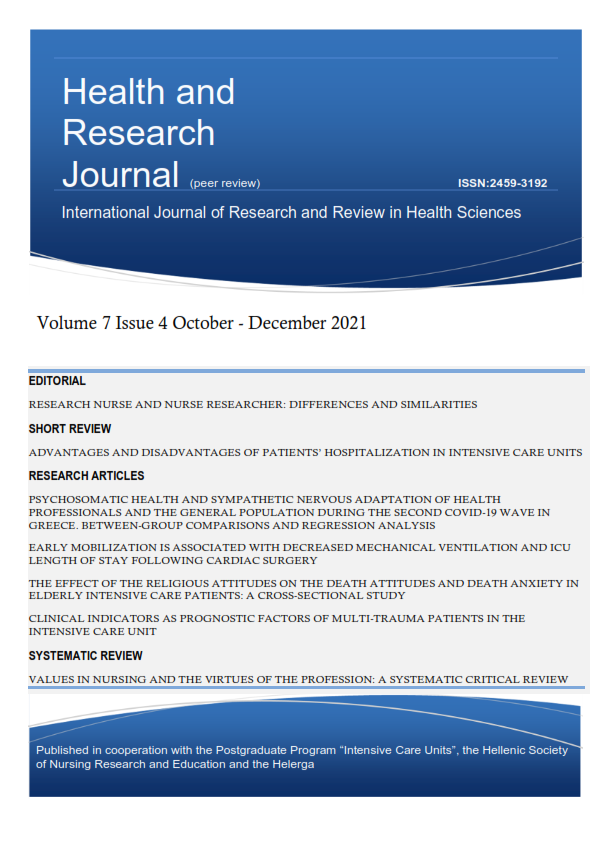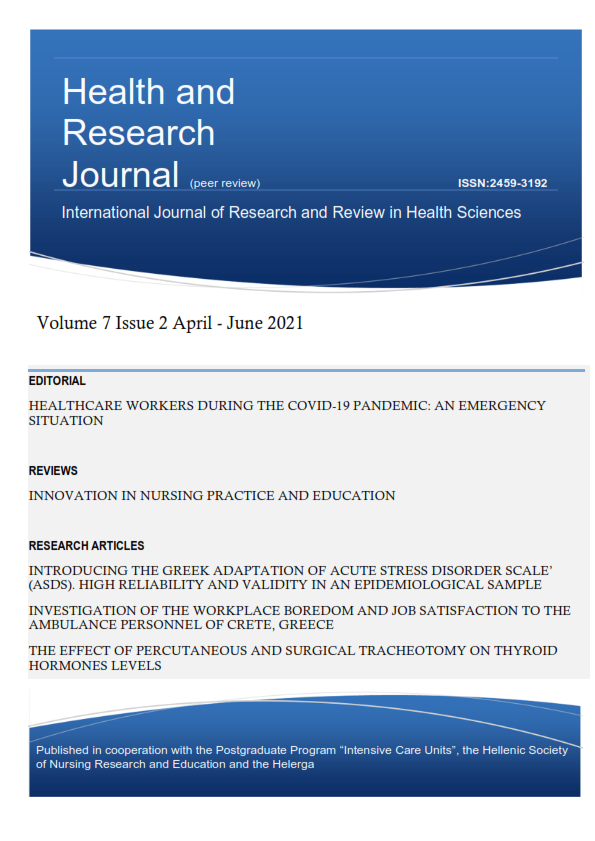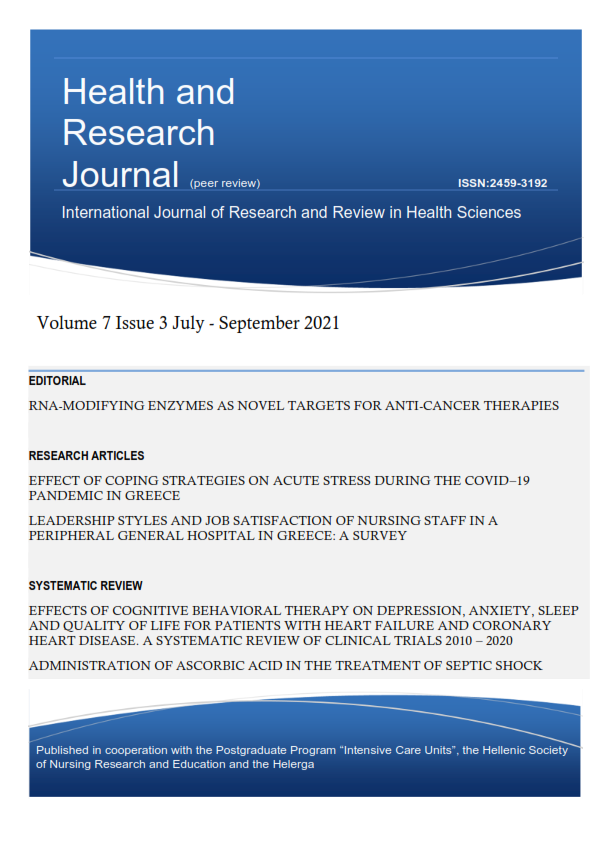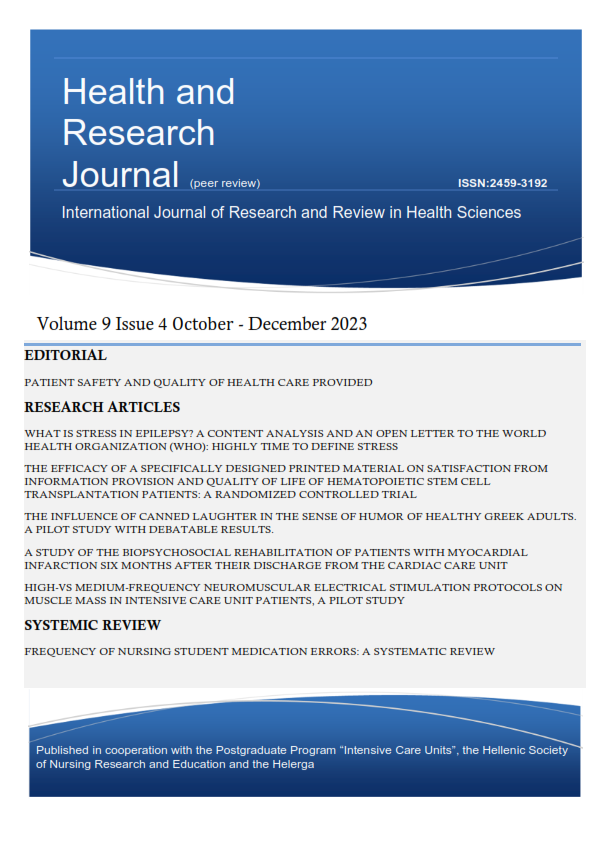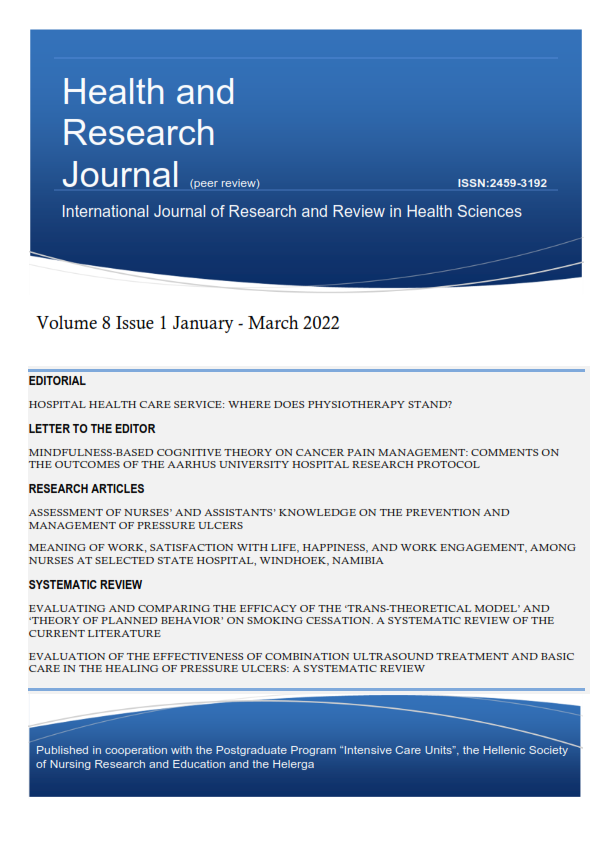The effect of fatigue on self-perceived health in patients with hemoglobinopathies in a greek representative sample
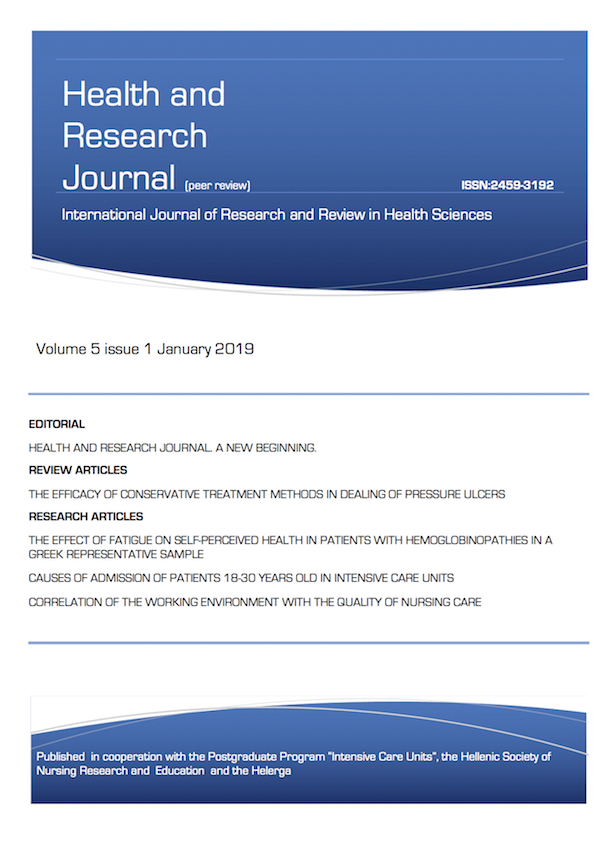
Abstract
Purpose: The purpose of the present study was to measure the effect of fatigue in quality of life by measuring self-perceived health in patients with thalassemia.
Methods: 302 patients undergoing transfusion treatment from 5 hospitals around Greece participated in the study. Fatigue was measured with open access questions and quality of life with the Euro5D thermometer as self-perceived health. Statistical analysis was performed with SPSS21.
Results: 236 patients (78.7%) reported that they were suffering from fatigue while only 21.3 % (n=66) reported that they had no fatigue. Present health status had a mean of 69.9 with an SD 19.3. Almost half (48.2%) declared they had fatigue a few times over a months period, while 41.7% replied that daily activities were the cause for feeling fatigue. Females reported statistically significant higher existence of fatigue (x2= 5.744; p=0.017). Education and marital status had no correlation with self-perceived health. Existence, frequency of fatigue, existence of fatigue during the last month, self-interpretation of the cause of fatigue and frequency of fatigue before transfusion all had significant differences with self-perceived health (p<0.05).
Conclusions: Fatigue has been identified as a very common symptom in patients with thalassemia affecting the self-perceived health in this population. This result broadens the evidence regarding fatigue in hemoglobinopathies and leads us to the need for distinguishing the etiologies leading to fatigue in hemoglobinopathies since it is an important factor affecting HPQoL. Longitudinal studies are needed in order to understand the path of fatigue and the factors influencing the conditionArticle Details
- How to Cite
-
Aslani, E., Kattamis, A., Lyrakos, G., Andriopoulos, P., & Tsironi, M. (2019). The effect of fatigue on self-perceived health in patients with hemoglobinopathies in a greek representative sample. Health & Research Journal, 5(1), 10–19. https://doi.org/10.12681/healthresj.19494
- Section
- Original Articles
Copyright notice:
Authors retain copyright of their work and grant the Health and Research Journal the right of first publication.
License:
Articles are published under the Creative Commons Attribution 4.0 International License (CC BY 4.0). This license permits use, sharing, adaptation, distribution, and reproduction in any medium or format, including for commercial purposes, provided that appropriate credit is given to the author(s) and the original publication in this journal, a link to the license is provided, and any changes are indicated.
Attribution requirement:
Any reuse must include the article citation and DOI (where available), and indicate if changes were made.



